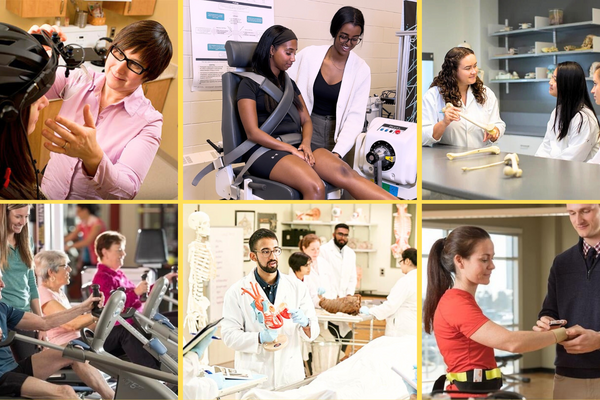
Q and A with the Experts: Everything you need to know about COVID-19 booster vaccines
Providing the Waterloo community with more information for this fall's new COVID-19 booster vaccines

Providing the Waterloo community with more information for this fall's new COVID-19 booster vaccines
By Media RelationsUpdated COVID-19 boosters are available this fall to help protect against severe COVID-19 infections. Each person is affected differently by the virus, from a high fever to aching muscles and a sore throat. Getting the COVID-19 booster, will contribute to broader community protection. Dr. Kelly Grindrod, pharmacist and associate professor at the University of Waterloo, answers questions about this year’s COVID-19 booster vaccines.
Are there different boosters available? How do I know which one I should receive?
When getting a COVID-19 booster, be sure to ask for the updated vaccine. For people unable or unwilling to receive an mRNA vaccine (Pfizer or Moderna), Novavax may be an option.
Why should I get the booster?
The National Advisory Committee on Immunization (NACI) recommends that starting this fall, everyone who already received a COVID-19 vaccine should get an updated Omicron XBB.1.5. booster. The updated booster is especially important for those who:
Vaccine programs are also being asked to prioritize communities that are disproportionately impacted by the virus due to systemic racism, including Indigenous communities (First Nations, Métis, Inuit) and racialized and equity-deserving communities.
Can I get the influenza vaccine and the COVID-19 booster vaccine at the same time?
Yes, in most cases it is safe and recommended to receive the annual influenza vaccine and the updated COVID-19 booster vaccine at the same time. Consult with your primary care provider or pharmacist to ensure it's appropriate for your health circumstances.
If I get my first COVID-19 vaccine this fall, when do I get my next dose?
People who get their first COVID-19 vaccine dose this fall are recommended to wait at least six months to get their first booster dose.
When is the best time to get my vaccine?
The ideal time to get your COVID-19 booster may vary depending on when you had your last vaccine. Typically, boosters are recommended at least six months after your last COVID-19 vaccine or COVID-19 infection (if you had a positive COVID-19 test).
Campus Wellness will provide both Moderna and Pfizer COVID-19 booster vaccines to members of the Waterloo community on Wednesdays beginning on November 15.
This series is produced for the media, and its purpose is to share the expertise of UWaterloo researchers. To reach this researcher, please contact media relations.

Read more
Waterloo Pharmacy alum spearheads outpatient oncology clinic for patients undergoing cancer treatment at WRHN

Read more
And a new model for how quantum research is shared — opening doors for the next generation of scientists and entrepreneurs

Read more
From optometry and pharmacy to public health and therapeutics, Waterloo alumni are powering Canada’s health care sector
The University of Waterloo acknowledges that much of our work takes place on the traditional territory of the Neutral, Anishinaabeg, and Haudenosaunee peoples. Our main campus is situated on the Haldimand Tract, the land granted to the Six Nations that includes six miles on each side of the Grand River. Our active work toward reconciliation takes place across our campuses through research, learning, teaching, and community building, and is co-ordinated within the Office of Indigenous Relations.